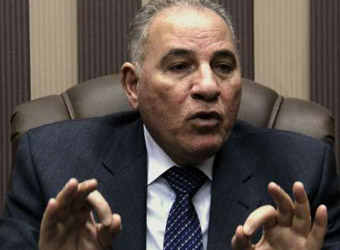CAIRO: Activists and family members of the two Egyptian doctors imprisoned in Saudi called on President Hosni Mubarak to intervene in the case.
The group headed to the Abdeen Palace Wednesday and presented a petition urging President Hosni Mubarak to get personally involved, hoping for a royal pardon for the Egyptian doctors by the Saudi monarch.
“We wish, with the amount of respect and appreciation your Excellency has in the heart of the Saudi king, that the two doctors will be released through your effort, the petition read.
Raouf Amin and Shawqi Abd Rabou were sentenced to 15 and 20 years in prison, respectively, as well as 1,500 lashes each for illegally trading narcotics in Jeddah. Amin was convicted for driving a Saudi princess to addiction, an accusation rejected by the doctors’ families.
“My father was following the addiction relief plan that specialists had prescribed to the [princess], Ahmed, Dr Amin’s son, told Daily News Egypt in a previous interview.
“My father didn’t even bring them the medicine; they already had it there, he said.
The group met with the presidency’s general deputy and came out with positive responses. “We had a good meeting; they were nice and promised to get the petition passed to the president today, Fathiya Shihata, Dr Amin’s wife, told Daily News Egypt after the meeting.
Shihata is not alone in her optimism. Naguib Gobrael, lawyer and the president of the Egyptian Union of Human Rights (EUHRO), is also hopeful.
“Our 30 minutes meeting with the general deputy could be summoned as a reason for hope, Gobreal told Daily News Egypt.
“It was more than presenting a complaint, we got the chance to present the case and to ask directly for presidential interference, Gobraeal added.
The Saudi-owned newspaper Al-Hayat reported Tuesday that Mubarak will travel to Jeddah on Thursday for a meeting with King Abdullah. It is not clear if the visit would cover the Egyptian workers’ complaints.
Six Egyptian hairdressers, whose guarantors (kafeel) accused of stealing, returned to Cairo after Prince Sultan Bin Abd Al-Aziz ordered their problems be resolved.
The Saudi authorities had withheld their visas and passports after they made a complaint of abuse against their Saudi employer.
After arriving home, the women told the MENA news agency that their employer forced them to work long hours and withheld pay. One of them, Rasha Hasanain, said she sometimes worked 19 hours a day without overtime pay.
“The work environment was harsh and we were exhausted in overwork for long hours, said another, Samah Barakat, according to MENA.
Ahmed Ashmawi, Egypt’s ambassador to Riyadh, thanked the Saudi prince for “his wise decree concerning the sensitive case that has threatened relations between the two countries.
The group lobbying for the doctors’ release hope the close ties between President Mubarak and Saudi King Abdullah would help get the case resolved and the two doctors freed after the foreign ministry’s efforts didn’t yield any results.
“We appreciate what the foreign ministry tried to do but, we have no seen any results yet. Gobraeal continued.
Foreign Minister Ahmed Aboul Gheit’s arguably downplayed the imprisonment and lashing of the two doctors last week, saying that the case should be calmly discussed between Egyptian and Saudi Arabian authorities, and that “the media fuss over it could have serious consequences.
This week, Foreign Ministry spokesperson Hossam Zaki echoed this statement, saying that the Egyptian government favors quiet diplomacy in this particular case.
On Tuesday Manpower and Immigration Minister Aisha Abdel Hadi lifted a ban on doctors from working in Saudi Arabia, which she imposed last month. According to the official Middle East News Agency, Abdel Hadi took the decision after assurances from the Saudi government that Egyptian doctors would get contracts guaranteeing treatment equal to that of their Saudi counterparts.
“It is a positive thing, Nageeb referring to the new decision. “Yet we still demand a fair treatment and guarantees for our workers. Gobraeal explained. -Additional reporting by Magdy Samaan and The Associated Press.

